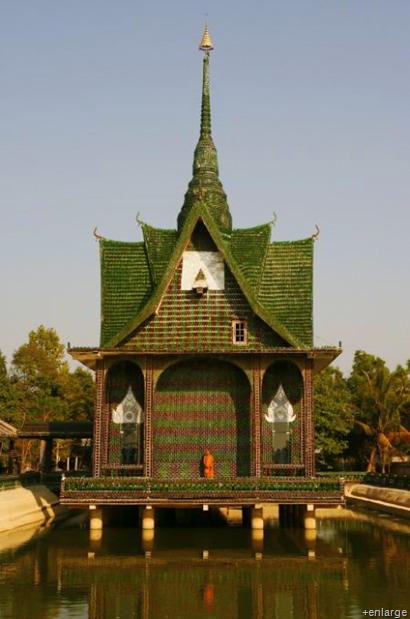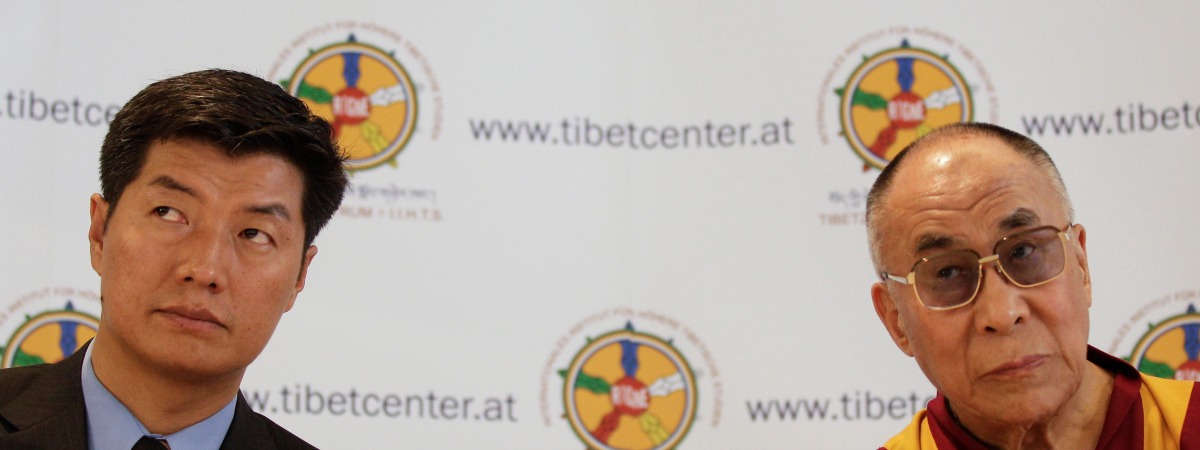
Only in Thailand: Sorrawee Nattee, the 2009 winner of the Thai “Miss Tiffany” transsexual beauty contest, has removed his breast implants and become a monk. That’s what I call getting the best of both worlds, since women in Thailand are unable to receive full ordination…
In Burma, the suffering of the Rohingya Muslims reaches Book of Job-like proportions as a tropical cyclone heads towards the makeshift camps where tens of thousands of them are now sheltering, displaced by the ongoing violence. The camps are located on low-lying land near the sea, especially vulnerable to flooding. Although various U.N. agencies are assisting in evacuating the camps, at least 50 people have drowned already, when a boat bringing about 100 Rohingya Muslims to higher land capsized three days ago.
Of course, the evacuation is not the only worry on the Burmese government’s mind. On Monday, three police officers and the police chief of the Burmese town of Maungdaw were arrested for stealing 60,000 pills of methamphetamine, which they had originally seized from a Buddhist monk harboring 120,000 pills of the stuff, worth about $4 million dollars. Sheesh!
 But lest you lose your faith in Buddhist monks entirely, there are some very crafty (and eco-conscious) monks over in Thailand who I found out about for the first time today. This might be old news to some, but it’s worth the share anyway: did you know that there is a temple in Thailand, the Wat Pa Maha Chedi Kaew temple, that is made of over one million recycled bottles? It’s nickname is the Million Bottle Temple, for obvious reasons, and construction on it began in 1984. Click here for more photos.
But lest you lose your faith in Buddhist monks entirely, there are some very crafty (and eco-conscious) monks over in Thailand who I found out about for the first time today. This might be old news to some, but it’s worth the share anyway: did you know that there is a temple in Thailand, the Wat Pa Maha Chedi Kaew temple, that is made of over one million recycled bottles? It’s nickname is the Million Bottle Temple, for obvious reasons, and construction on it began in 1984. Click here for more photos.

Last on the docket this week on Buddha Buzz, The Atlantic published a great mini-profile and interview with Lobsang Sangay, who became the prime minister of the Tibetan government-in-exile when HHDL stepped down in 2011. Lobsang Sangay was the first Tibetan to receive a degree from Harvard Law School (who knew? not me…) and ran for prime minister, he says, mostly on a lark:
How did you come to win the election?
This guy launched a site—kalontripa.org [the former title for the head of the elected government]. He wanted to push candidates to come forward. Anyone could nominate a candidate, but when no candidates volunteered, it almost flopped. A friend of mine happened to visit him. He nominated me, and said, let’s see where it goes. My name was put forward to entice other candidates to come forward. My name came first, then the other candidates actually came. Then newspapers started nominating names, and they all took their cue from the site, and everyone started nominating me because I was listed first. I had no plans whatsoever. I spent 16 years at Harvard Law School. I hardly ever went to the Kennedy School [of government].
I said, “what the heck, I am just going to lose anyway.” I thought I could improve the election by pulling the other candidates along. We never had campaigns or debates of candidates before. After I was drawn in, I started drawing interest in the cause. Conventional wisdom was that I had a 1 or 2 percent chance of winning. You’re running an exile administration, filling the shoes of the Dalai Lama…how can someone parachute in and win just like that?
Then we had debates, and interest started generating. The other candidates were seen as insiders, and me as the outside candidate. And then one thing led to another and people voted for me. It became more of an election of personalities than policies.
The Dalai Lama pulled all of his authority right at the same time. Before, the job was a lot simpler because you could just get a paper signed by him and show it to Tibetans and say, “don’t criticize this.” But then, His Holiness said, “you’re on your own.” And I thought, “Oh my goodness, what did I bargain for?”

He speaks quite frankly in the rest of the interview about the Tibetan self-immolations and his hopes for the future. He also does the bad pun lovers among us a solid with a so-bad-it’s-good Buddhist joke near the end of it:
It sounds like you were subject to Chinese phishing attempts via email attachments? Does that happen often?
Yes, all the time. They try to monitor me, destroy my computer, make my life difficult.
It’s where the Buddhist philosophy comes in—don’t have attachments!
Thank you for subscribing to Tricycle! As a nonprofit, we depend on readers like you to keep Buddhist teachings and practices widely available.